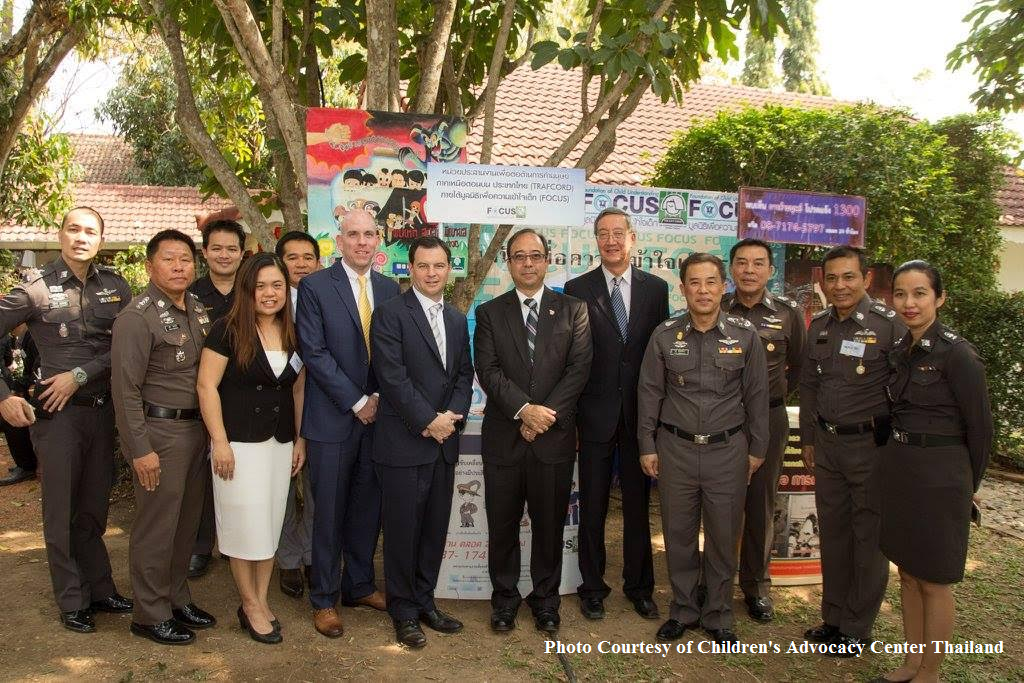
Federal Bureau of Investigation Press Release on 16 September 2016,
Thailand has long been a popular tourist destination for Westerners charmed by the country’s culture and cuisine, its storied beaches, and its ever-present markets. Unfortunately, a certain type of visitor is also drawn to the well-established sex trade, which too often victimizes children.
The dark side of Thailand’s tourism industry plays out nightly in Bangkok’s tawdry red-light districts, in Chiang Mai’s after-hours club scene, and along the neon-infested Walking Street in the coastal town of Pattaya. In these and other places less obvious, trafficked children can be bought and sold, reduced to the basest form of commerce.
Increasingly, the Thai government—with the assistance of the FBI and other partners—has taken significant steps to address the sexual exploitation of children and to focus more attention on victims, whose interests in the past have sometimes been overlooked.
“The Thai government has adopted a new urgency when it comes to the issues of child exploitation, sexual abuse, and trafficking in persons,” noted U.S. Ambassador to Thailand Glyn T. Davies. “This new urgency is very welcome.”
Davies explained that trafficking is a “huge problem in Thailand, as it is in many countries.” But the Thai government has shown a “new eagerness” to address the problem and to seek help from the United States, the ambassador said. “That is terrific, because we’ve got the FBI, the Department of Homeland Security, and the State Department’s expertise and resources that we can bring to bear.”
[youtube]https://www.youtube.com/watch?v=KVnCtXO9u1I[/youtube]
U.S. Ambassador to Thailand Glyn Davies describes a “new energy” and interest by the Thai government in addressing child sex trafficking through increased partnerships and collaboration.
Among recent promising developments:
- The Thai government opened a Child Advocacy Center in Chiang Mai, the first of its kind anywhere in Southeast Asia. Based on U.S. models, the center provides shelter and resources for young victims of sexual exploitation and other abuse, and allows specially trained experts to conduct interviews with the children in a friendly, stress-free environment.
- A law enacted in 2015 has made it easier to arrest and prosecute pedophiles and other sexual abusers who are in possession of child pornography.
- The establishment of the Thailand Internet Crimes Against Children Task Force (TICAC). Based on a U.S. model, the task force combats sexual exploitation facilitated online through shared intelligence. Thai law enforcement officials have recently begun working directly with the National Center for Missing & Exploited Children in the U.S. to share real-time information.
- With training and support from the FBI and Homeland Security Investigations (HSI), an investigative arm of the Department of Homeland Security, the Royal Thai Police is in the process of establishing a victim assistance program—similar to the FBI’s Office for Victim Assistance—in which trained police specialists work on behalf of child victims.
[youtube]https://www.youtube.com/watch?v=2riN52vadOs[/youtube]
Young women linger on motorcycles on a busy street in one of the red-light districts in Thailand.
Many of these efforts to stem the tide of human trafficking and child sexual exploitation in Thailand have occurred because of the continuing collaboration between Thai law enforcement and U.S. agencies working in Southeast Asia—notably the FBI, HSI, and the U.S. Department of State.
[youtube]https://www.youtube.com/watch?v=HIVr4GvD9yE[/youtube]
Gen. Tamasak Wicharaya oversees the Thailand Internet Crimes Against Children Task Force.
“American law enforcement has been long-time good friends to the Royal Thai Police,” said Gen. Tamesak Wicharaya, an assistant commissioner on the police force who oversees the TICAC and has been instrumental in moving the victim assistance program forward. “Trafficking is a serious crime,” he said. “It is a crime against human dignity, but when they do this to our children, it is even worse.” The general explained that there is a “clear national agenda” in Thailand to address these issues and to assist young people who are sexually exploited by Thai citizens as well as foreign visitors.
“We see a large number of travelers from the U.S. and other countries coming here to commit acts against children,” said Special Agent John Schachnovsky, head of the FBI’s legal attaché office in Bangkok. “To travel from the U.S. to any foreign country and engage in sex with a minor is against the law.”
Schachnovsky pointed out that providing assistance to victims—as the FBI has formally done since 2001—is not only the right thing to do morally, it helps law enforcement more effectively investigate cases. That, in turn, increases the likelihood abusers will be jailed and will cease to pose a threat to the community.
“For victims of crime to know that the police force is on their side from day one is very important,” he said. “The world knows that the sexual exploitation of children is a problem. There aren’t two sides to the issue of taking care of victims. This is a situation where we are able to do something that is 100 percent right.”
The more child sex tourists and traffickers who are sent to Thai prisons or returned to the U.S. for prosecution, said Gen. Tamesak, the more the word goes out that Thailand is no longer a playground for pedophiles and other sexual predators. “We hope that we can send a clear message to those people that Thailand is not a safe haven for them. We will work harder to stop these kinds of people.”
Ambassador Davies agreed. Given the changes taking place from the top down in the Thai government and in law enforcement, he said, “I think people are making a big mistake if they think they can come here and operate freely when it comes to these types of heinous crimes.”
[youtube]https://www.youtube.com/watch?v=XO_9dgci_7k[/youtube]
John Schachnovsky, head of the FBI office in Thailand, describes how the Royal Thai Police has moved quickly to embrace a more victim-centered approach.
Source: https://www.fbi.gov/news/stories/report-from-thailand-part-1




